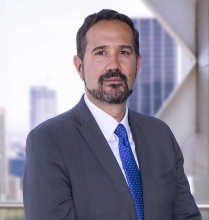International Arbitration Newsletter - November 2019 | Regional Overview: Asia Pacific
The most relevant Asia Pacific updates from the global International Arbitration and ADR practice group at Garrigues.
Australia
Australian energy company withdraws ECT claim against Georgia
Range Resources, an Australia energy company located in Perth, announced that without prejudice to the arbitration, it had withdrawn the notice of arbitration claiming USD 24 million against Georgia for improper termination of a production-sharing agreement as well as unlawful expropriation.
The Contract was entered into in 2007 and related to an oil and gas block located in western Georgia called Block VIA. In 2009, Range indirectly invested considerable capital in the Contract via a Gibraltar entity which it owned 65% shares. Subsequently, the minimum work scheme of Range stipulated in the Contract was confirmed as “satisfactorily completed” by Georgian Ministry of Energy. However, the Ministry announced an international public bidding for the Block VIA in 2017, which Range regarded as “flagrant violation” of the Contract.
In June 2019 Range lodged a claim of USD 21.9 million in damages plus USD 1.7 million in interest against Georgia in accordance with the Energy Charter Treaty, alleging that Georgia terminated the Contract improperly. It is notknown whether a tribunal has been appointed to hear this case.
China
Shanghai to allow foreign institutions to administer foreign arbitrations seated in mainland China
The Shanghai Municipal Bureau of Justice (Shanghai BOJ) passed administrative regulations permitting foreign (non-mainland Chinese) arbitral institutions to register in the new Lingang area of the Shanghai Pilot Free Trade Zone. Once registered, the institutions will be permitted to administer foreign-related civil and commercial arbitrations seated in mainland China. This development follows the issuance by the PRC State Council of a high-level free trade zone (FTZ) plan in August, which envisaged an expansion in the functions exercised by foreign arbitral institutions operating in mainland China.
In recent years, a number of foreign institutions (including the ICC, the HKIAC and SIAC) have established representative offices in the Shanghai FTZ (although not in the new Lingang area). These representative offices have been limited to liaison activities and have not been permitted to administer PRC-seated arbitrations.
The Shanghai BOJ regulations seek to provide instructions on the registration procedures and clarify the scope of cases eligible for acceptance by foreign arbitral institutions. To be eligible to register, the relevant institution must, among other things, have been established and operated overseas for at least five years; and be well known and have substantive experience in the administration of disputes.
HONG KONG
Hong Kong to reconsider success fee structures in arbitration
The Hong Kong Law Reform Commission (LRC) has announced that it will examine whether lawyers should be permitted to charge success fees for arbitrations seated in the special administrative region.
The current position under Hong Kong law prohibits lawyers from charging “outcome-related fees” in arbitration. The LRC subcommittee will consider whether reform is needed to the relevant law and regulatory framework and, if so, make recommendations for reform. The LRC last reviewed contingency fees in 2007 but concluded that conditions at the time were “not appropriate” for their introduction, noting public interest concerns resulting from poor availability of insurance in Hong Kong to cover opponent's legal costs.
Lawyers in England & Wales have been able to offer flexible fee structures to clients in arbitrations seated in the jurisdiction since legal reforms were enacted in 2013.
The LRC says it now “sees the value” in reconsidering the topic of outcome-related fees for arbitration, in view of Hong Kong being a leading centre for arbitration services in the Asia-Pacific region.
India
Indian court considers withholding tax of arbitration awards
The Delhi High Court has upheld arguments by a Glencore affiliate that no withholding tax is permissible on a foreign arbitral award.
The ruling reinforces the pro-enforcement stand adopted by the Indian courts in recent times. The court’s decision on the tax implications, if any, on a foreign arbitral award will assist foreign stakeholders seeking to enforce their foreign arbitral awards in India.
The decision arose from a petition filed by Glencore International AG seeking to enforce and execute a London-seated LCIA award worth around US$4.5 million.
Dalmia Cement (Bharat) Limited first filed objections under section 48 of the Arbitration and Conciliation Act 1996 on various grounds, including that enforcement of the award would be contrary to public policy in India, including arguments that tax was due on the amounts payable under the foreign award and therefore proposed to deduct withholding tax before remitting the amounts under the decree. The court rejected this proposal and ordered Dalmia to remit the amount in full but the question of whether withholding tax was due (and should therefore be deducted by the court before the amount awarded could be remitted to Glencore) then fell to be considered.
Pakistan
Turkish energy company and Pakistan settle claim on electricity contracts
Pakistan’s Prime Minister has announced a settlement between Pakistan and Turkish energy company Karkey Karadeniz Elektrik which avoids paying any part of an ICSID award worth US$1 billion, resolving a dispute that had seen the claimant face allegations of corruption.
The National Accountability Bureau (NAB), the country's anti-corruption body, has agreed not to prosecute Karkey directors, agents and employers for corruption, which in turn brings to an end to Pakistan’s efforts to revise or annul an ICSID award worth US$500 million plus interest issued in favour of Karkey in 2017.
The dispute relates to a contract that Karkey won in 2008 to provide electricity to Pakistan during an energy crisis. It supplied the power using vessels stationed near the port city of Karachi. However, in 2012 Pakistan’s Supreme Court declared all short-term electricity contracts entered by the government void from the outset and ordered an investigation of “possible corruption by Pakistani officials and all contractors”.
In its 2017 award, the tribunal found the state liable under the Turkey-Pakistan bilateral investment treaty after finding it had not met its burden of proving Karkey’s investment was tainted by corruption.
South Korea
South Korea wins first treaty claim ever
South Korea has had its first-ever win in an investment treaty arbitration, defeating an HKIAC-administered claim brought by US citizen Jin Hae Seo, who said her residential property was expropriated.
The UNCITRAL tribunal had upheld preliminary jurisdictional objections to the US$3 million claim brought by Jin Hae Seo under the US-Korea free trade agreement.
The Seoul-seated tribunal was administered by the Hong Kong International Arbitration Centre.
Vietnam
PetroVietnam hit by new claim from Russian contractor
Russian engineering company Power Machines has brought a SIAC claim against state-owned PetroVietnam over a stalled project to build a US$1.3 billion power plant after the state-owned oil and gas company stopped making payments towards the project.
The disputes relates to Power Machine´s unsettled work as the general contractor in a project to build the Long Phú 1 thermal power plant in the southern Vietnamese province of Soc Trang. A joint venture between its subsidiary PetroVietnam Technical Services Corporation, Power Machines and BTG Holdings of the Philippines was awarded the engineering, procurement and construction contract for Long Phú 1 in 2015.
As part of its role as contractor, Power Machines had subcontracted with Japan’s Toshiba Corporation and General Electric of the US to obtain transformers, steam turbines and generators for the project. Construction of the plant commenced in 2015 and had been scheduled for completion this year.
However, in January last year Power Machines was placed on a US sanctions list of Russian individuals and companies involved in the supply of turbines to Crimea, the peninsula annexed by Russia in 2014. As a result of those sanctions, US companies including General Electric cancelled their contracts with Power Machines, while international banks from Italy, Germany and South Korea also declined to conduct any payment transactions with the Russian company.
Unable to obtain products critical to the Long Phú 1 plant, Power Machines was forced to stop work at the facility in 2018. PetroVietnam halted its payments to the company shortly afterward.
Contacts




-
+52 55 1102 3570
-
+57 601 326 69 99



